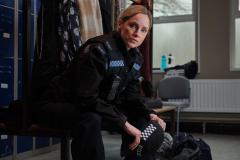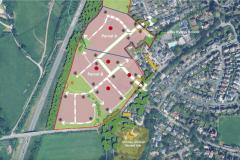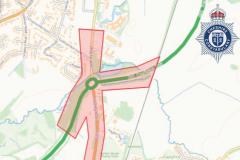At a meeting of the council's highways and transport committee on 20 July, councillors will consider a report on proposals to deliver energy and cost savings measures from street lighting, as well a separate report on work to review car parking across the borough.
It follows the approval of the council's adopted Medium Term Financial Strategy (MTFS), which includes proposals for how the council will balance its budget for the next four years and protect essential frontline services.
The report on parking sets out how the council is carrying out a review to understand how people are using car parks and how the service can respond to behaviour changes following the covid pandemic.
Alongside this, a set of initiatives are being developed that aim to improve the fairness and consistency of parking arrangements across the borough while also supporting town centres to thrive, improving parking management and encouraging more sustainable and active modes of travel.
Councillor Craig Browne, deputy leader of Cheshire East Council and chair of its highways and transport committee, said: "Since the covid pandemic, there have been significant changes in the use of our car parks, especially a reduction in long-stay parking because of factors such as home-working.
"Our current parking provision reflects legacy arrangements which do not take into account the individuality of our towns, are difficult for customers to understand and may be seen to lack fairness across the borough.
"We also continue to face significant financial pressures and must look to reduce costs and consider other sources of revenue generation so that we can continue to protect essential frontline services and fill a £20m gap in funding.
"The parking review we are now carrying out represents an opportunity to address these factors and ensure that we can apply our parking policies in a fair and consistent way while also supporting the council's wider aims and ambitions – especially reducing transport-related carbon emissions."
The proposals being developed include charging for parking on a more consistent basis and piloting a system of 'demand responsive' parking charges at a number of locations to see whether it has wider benefits to the parking service.
The council is also reviewing its parking tariffs, which have not been increased by the council since 2018, when they were put up by 10 pence.
The review is being undertaken on a place-by-place basis and will consider adopted town centre vitality plans, which include priorities to encourage walking and cycling.
Subject to committee approval, a period of public consultation on the council's proposals is expected to take place in September.
During July's highways and transport committee, councillors will also be given an update on work to deliver energy and cost savings measures from street lighting.
Faced with an 11 per cent increase in energy rates this year, the council is proposing to reduce its energy consumption by either turning some street lights off completely, or by turning some off for part of the night, starting from this winter.
Cllr Browne said: "The costs relating to street lights already make up almost 9 per cent of the highway service's overall budget and increases in energy rates alone will add a further financial pressure of around £137,000 this year.
"Over the next two years, we must reduce the borough's annual street lighting energy consumption by almost 40 per cent so that we can deliver savings of £0.45m.
"The only way to achieve this – while also responding to the impact of energy generation and consumption on carbon levels – is to look at our energy savings options.
"In doing this, an assessment of every road with street lighting – both in rural and urban areas – will be carried out before final proposals are consulted on publicly, which we expect to do by autumn."
In developing its proposals, the council says it will consider factors including areas of high footfall, bus routes, pedestrian crossing facilities, the locations of road traffic collisions and anti-social behaviour.
The council is also exploring a number of technical solutions that can support the implementation of the street lighting energy saving options.






